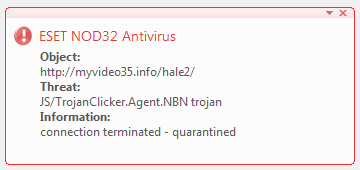Shocker. The ‘0rgasm’ post on Facebook leads to a virus (Trojan). Funny enough, it hasn’t been men that have been clicking on the link in the feed. 🙂
Here’s what the latest scam/virus/fake link looks like…
They’re trying to circumvent Facebook’s detection algorithm by tossing in zeros (0) for the O’s…

I don’t really feel too bad for those who clicked this (come on, isn’t this one just obvious?), but we still have to bring it to everyone’s attention. The very nature of Facebook’s “social – proof” feedback leads to people almost unconsciously clicking random links in the Facebook feed. “Oh, I bet this is funny, it can’t be too bad.” All it takes is one click and your system is infected.
Well, this one is a Javascript loader that pushes a Trojan onto your PC…

If you clicked the ‘r0ller c0aster’ link in the Facebook Feed and you didn’t see a notification from your antivirus software instantly, then you are infected, 100%, no doubt. You should be running ESET Nod32. What if an employee clicked on that link while at your store? Your consignment software would be rendered useless until the infection was removed. How many minutes can you go without your systems? How many hours? What if your backups stopped working two days ago, but you didn’t know? Now your systems are down and you might’ve lost the last few days’ worth of data. See how quickly one little *click* could turn into a disaster?
The interesting thing is, ESET’s database knew about this threat and Facebook didn’t. Now, Facebook isn’t security software (not primarily), but it does perform security tasks. They do parse new posts for known-bad URLs and will either toss up a CAPTCHA or if it’s a known-threat (according to Facebook, that is), then they’ll block the post altogether. Maybe Facebook could/will eventually get to the point where they utilize a global threat database.
This is one of the topics we’ll be discussing this Saturday at the 2011 NARTS Conference in Dallas, TX. There is no silver bullet. Sure, this is technology and security programs exist, but social engineering and people trying to scam you isn’t unique to technology. We’ll continue to show the types of posts used to dupe you into installing malware. Just stop and look at the URL before you click. Make sure it’s a trusted URL. And no matter what, just start using ESET Nod32, please? How many times are you going to see someone get infected or you yourself, end up with an infected system?


